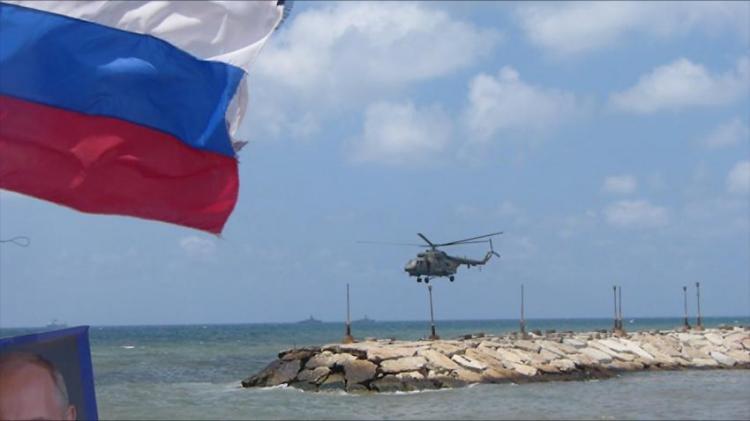Moscow – Farhad Pateive
The 22nd round of the Astana talks took place on the 25the and 26th of April 2019, in the capital of Kazakhstan, Nur Soltana (formerly Astana), where the talks were attended by main representatives (Russia, Turkey, Iran) in addition to the ones of the United Nations and Jordan.
The difference between this round and the previous 11 rounds is that the dialogue in the 12th round was held under the umbrella of the United States decisions, which considers the Iranian Islamic Revolution Army a “terrorist organization” as well as considers the Golan region in southern Syria a part of Israel territory, and prevent the purchase of oil from Iran.
The /S-400 / missile system and /F-35/ warplanes, which exacerbate the tension between Turkey and the United States and the problem of fuel shortage in Syria, was another topic of discussions in this round.
The guarantor states of the Astana talks are holding these meetings under the name of “resolving the Syrian crisis”, but essentially each party implements its own agendas.
Russia believes that the Middle East has a special place in the global economic system that directly affects domestic and international politics.
The Middle East is a major source of energy and an important area, and at the same time an important market for the purchase and sale of weapons. Therefore, getting out or moving away from this area means moving away from the center of politics and world power. Thus, the countries that want to have an influence in the international arena, in terms of moving away from the Middle East, threaten its existence.
After the fall of the Soviet Union and the silence of Moscow, which was often preoccupied with internal problems and neighboring countries, at the beginning of the “Arab Spring”, particularly, at the beginning of the war in Syria, Russia changed its foreign policy. Russia sees events in Syria and its last circle of presence in the Middle East as an attempt to distance it from the strategic region.
Russia’s attempts to return to Egypt and Libya succeeded, but its attempt in Sudan to bring down Omar al-Bashir’s regime failed.
Nowadays, Syria is the most controlled by Russia.
On April the 20the , 2019, Damascus government signed a contract with Russia to hand over the Tartous port for 49 years. In August 2015, the contract for handing over the Hmeimim Military Base to Russia was signed for 49 years. In January 2017, a contract was also signed to expand the material and technical support base for the Russian naval forces in Tartous for 49 years.
Turkey was supposed to be the biggest winner in the “Arab Spring.” Turkey was given the most prominent role, and it was known as an acceptable model for a “moderate Islamic state.”
But the euphoria of victory and the distrust of the Turkish alternative in this big game made Turkey make big mistakes, of which the first one was its attempt to pursue an independent policy in the global project that has made some things go beyond the plan and cause a contradiction between the planners. The second mistake was Turkey’s oppression the Kurds and exploiting the unlimited possibilities offered by the world powers against the Kurds , until it reached the stage of supporting the organization of the “Islamic State” (Da’ash),publicly.
The third mistake was that Turkey, in a short time, wanted to earn the biggest profit from buying the oil from the organization of the Islamic State, which collided with the Russian interests. The increase in cheap oil in the world market has lowered its price by two degrees in a short time. The budget of the Russian economy has been affected, which has caused great discomfort to Russia, since the Russian economy depends on the prices of oil and gas.
The fourth mistake was Turkey’s great confidence in the support of the international forces. Turkey has not paid any attention to Russia and has targeted a Russian military aircraft.
At the time Turkey’s relationship with the “Islamic State”, and the serious reasons between NATO and Russia for Turkey’s mistakes have been revealed. Turkey has not received support from the international powers and has remained with the problems it has created on its own.
War for energy sources
One of the conditions for the advancement of technology is the increase of the need for energy, so, the countries or regions that own energy sources are of great importance. In this case, these countries or regions have two choices, either to be strong enough to stand on their own feet in world politics and play the role of the winner seller or become a victim of the states that want to control their energy sources.
In the Asia-Europe continent, there are two important places for energy sources, Russia and the Middle East, and in the same continent, Europe is the largest importer of oil and gas. In this case, the eyes of Russia and the Middle East directed towards the European market.
In such a situation Russia and the Middle East are rivals to this market, and the energy lines (oil and gas) of the Middle East countries, towards the largest importer (European countries), are considered an alternative to Russian lines.

